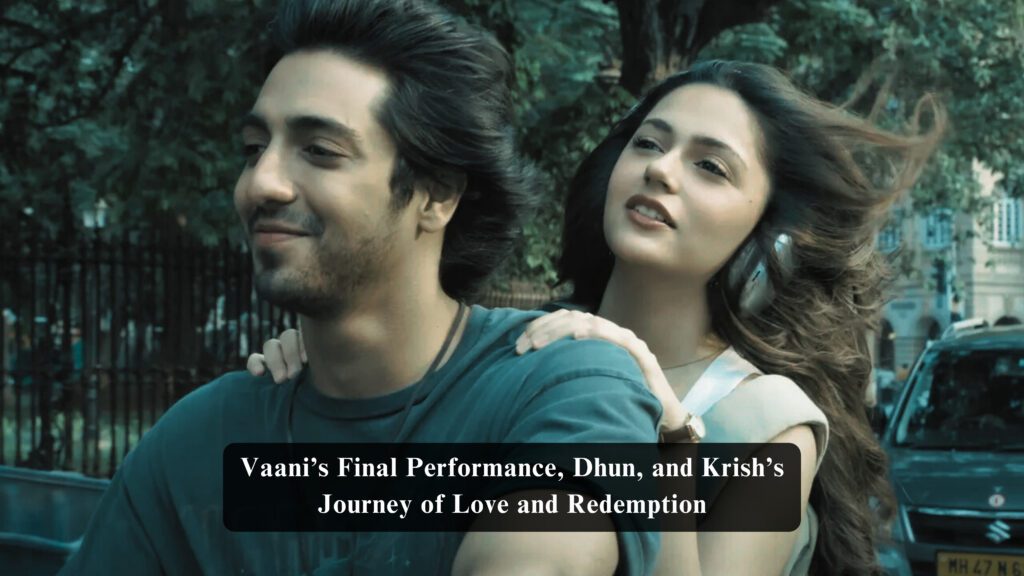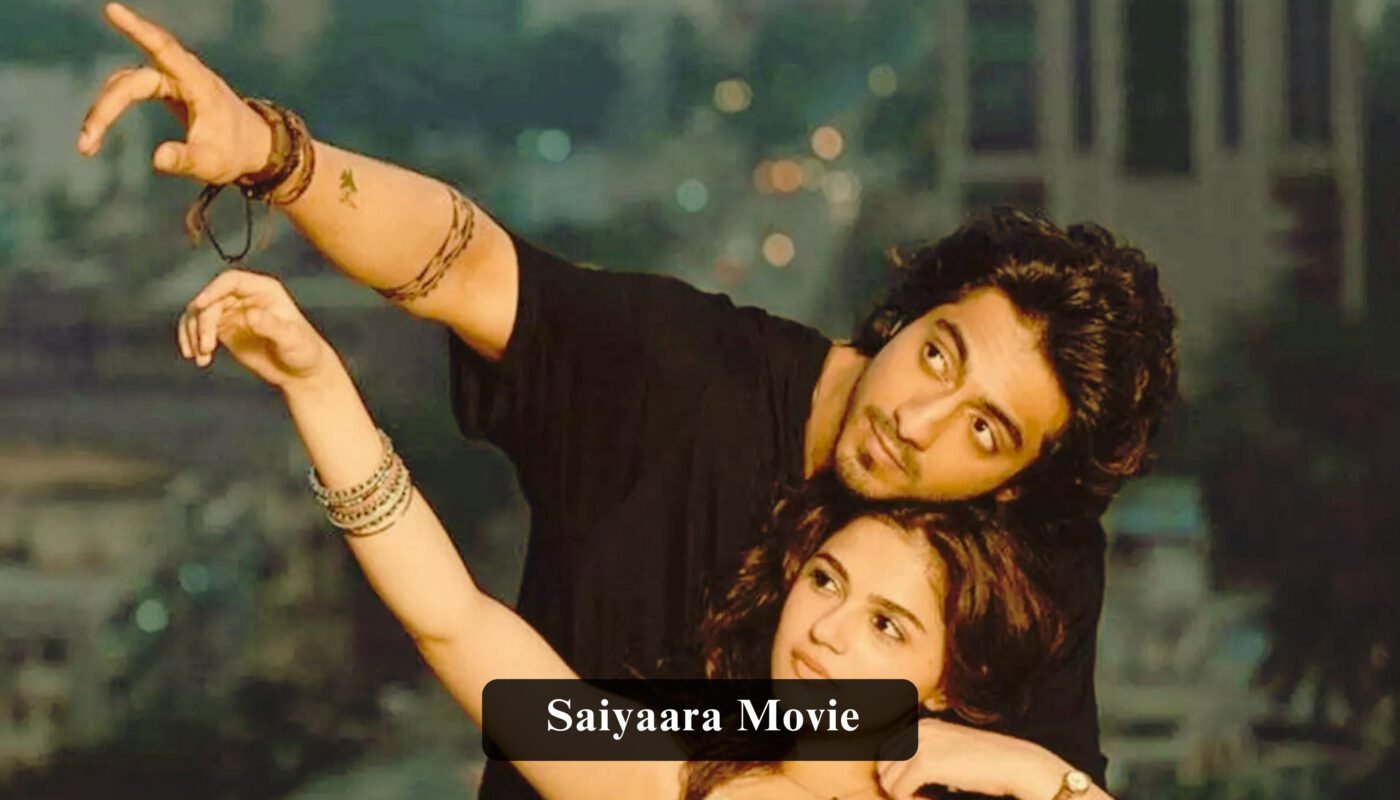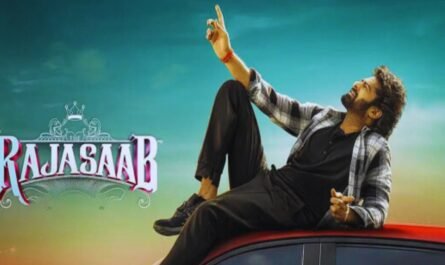When I walked into the theater to watch Saiyaara, I expected a heartfelt musical romance. What I didn’t expect was a film that would stay with me long after I left, tugging at my heart in ways I didn’t see coming. This isn’t just another love story—it’s a deeply emotional exploration of memory, music, and the fragility of time.
The movie asks powerful questions we rarely face head-on:
What happens when the person you love begins to forget you? How do you hold onto moments that are slipping away?
At its heart, Saiyaara is the story of Vaani, a gifted singer diagnosed with early-onset Alzheimer’s, and Krish, a talented but self-centered musician who learns, too late, that love doesn’t wait forever. Their imperfect relationship makes the story all the more real and painfully relatable.
Vaani’s Final Song: The Scene That Stopped Time
The emotional peak of Saiyaara comes during Vaani’s last performance—a moment that silenced the theater. Knowing her memory is fading fast, Vaani writes one final song, “Dhun,” as a love letter to Krish.
The scene is breathtakingly intimate. The spotlight falls on Vaani, her hands trembling slightly, her eyes occasionally unfocused. Then she begins to sing. Her voice, though fragile, carries a raw strength that fills every corner of the room. It’s not just a song—it’s a goodbye, a final gift.
The camera cuts to Krish, tears streaming down his face, as regret and love collide within him. In that moment, the world disappears. It’s just her voice, his grief, and an audience holding its breath.
“Dhun” – A Melody That Echoes Worldwide
After Vaani’s passing, “Dhun” takes on a life of its own. It’s no longer just a song—it becomes a universal anthem of love and loss. The film’s montage shows people across the globe connecting with it in their own quiet ways:
A teenage girl doodling in her journal while softly humming the tune.
A café musician strumming its chords for a small, captivated crowd.
A tired office worker singing it under their breath on a midnight train ride home.
For them, it’s a hauntingly beautiful melody. But for Krish, every lyric is a reminder of Vaani. When he finally performs “Dhun” live for the first time, it feels less like a concert and more like a conversation with her spirit. Behind him, home videos of Vaani laughing and singing flicker across a screen, turning the performance into a farewell that refuses to fade.
The Proposal That Never Happened

One of the film’s most devastating moments is Krish’s missed proposal. Throughout the story, he carries a velvet ring box in his pocket, waiting for the perfect moment. But he keeps postponing it—buried in work, distracted by pride.
By the time he finally kneels before her, it’s too late. Vaani, lost in her illness, stares at him blankly and whispers, “Do I know you?” The silence in that moment is deafening. No music. No dialogue. Just heartbreak.
It’s a brutal reminder that love doesn’t wait for perfect timing—it needs to be lived in the now.
Music as Memory: Vaani’s Fade
The film handles Alzheimer’s with remarkable tenderness. It doesn’t strip Vaani of her identity. Instead, it shows how music becomes her anchor, keeping her tethered to herself and to Krish even as her memories fade.
One unforgettable scene shows Krish quietly playing guitar in her hospital room. At first, she stares blankly, lost in confusion. But then, almost unconsciously, she hums along. For a few fleeting seconds, it’s as if the fog lifts—her smile returns, her eyes soften. It’s music, not memory, that brings her back.
Krish’s Redemption
Krish’s transformation is one of the film’s strongest elements. We first meet him as a man consumed by fame and ego. But through Vaani’s illness and death, he evolves—she teaches him empathy, even in her absence.
In the final act, Krish creates the Vaani Foundation, funding music therapy programs for Alzheimer’s patients. His concerts turn into tributes, blending performance with purpose. The closing scene shows him under a single spotlight, singing “Dhun” to a roaring crowd. As the audience joins in, their voices merge into a powerful chorus—a collective goodbye that feels healing and eternal.
Why Saiyaara Resonates
What makes Saiyaara so unforgettable is its honesty. It’s not a polished fairy tale; it’s raw, messy, and painfully real. Its themes are universal:
Love is urgent. Waiting too long can mean losing your chance.
Music is eternal. It carries feelings when words fail.
Grief doesn’t end—it transforms. We don’t move on; we move forward, carrying love with us.
These truths hit hard because they mirror life itself.
Final Thoughts: A Film That Lingers
Even days later, I can’t stop thinking about Saiyaara. Its imagery—ink-smudged lyric sheets, trembling hands on piano keys, unspoken glances—stays with you. Its soundtrack feels alive, like it was written not just for the movie but for anyone who’s ever loved and lost.
Walking out of the theater, I felt shattered yet strangely hopeful. Saiyaara is a reminder to hold your loved ones closer, to speak your heart now, and to never underestimate the healing power of music.
If you haven’t watched it yet, don’t just see it—feel it. Bring tissues, bring someone you love, and let Saiyaara remind you what it means to truly cherish the fleeting time we’re given.
Final Thoughts: The Legacy of Saiyaara
Saiyaara is not just a film—it’s an experience. It’s a story about music that heals, love that lingers beyond memory, and the beauty of holding onto someone even when they’re no longer here.
If you haven’t seen it yet, don’t just watch it—feel it. Bring tissues, bring someone you love, and let it remind you of the urgency of life, the strength of music, and the permanence of love that refuses to fade.




